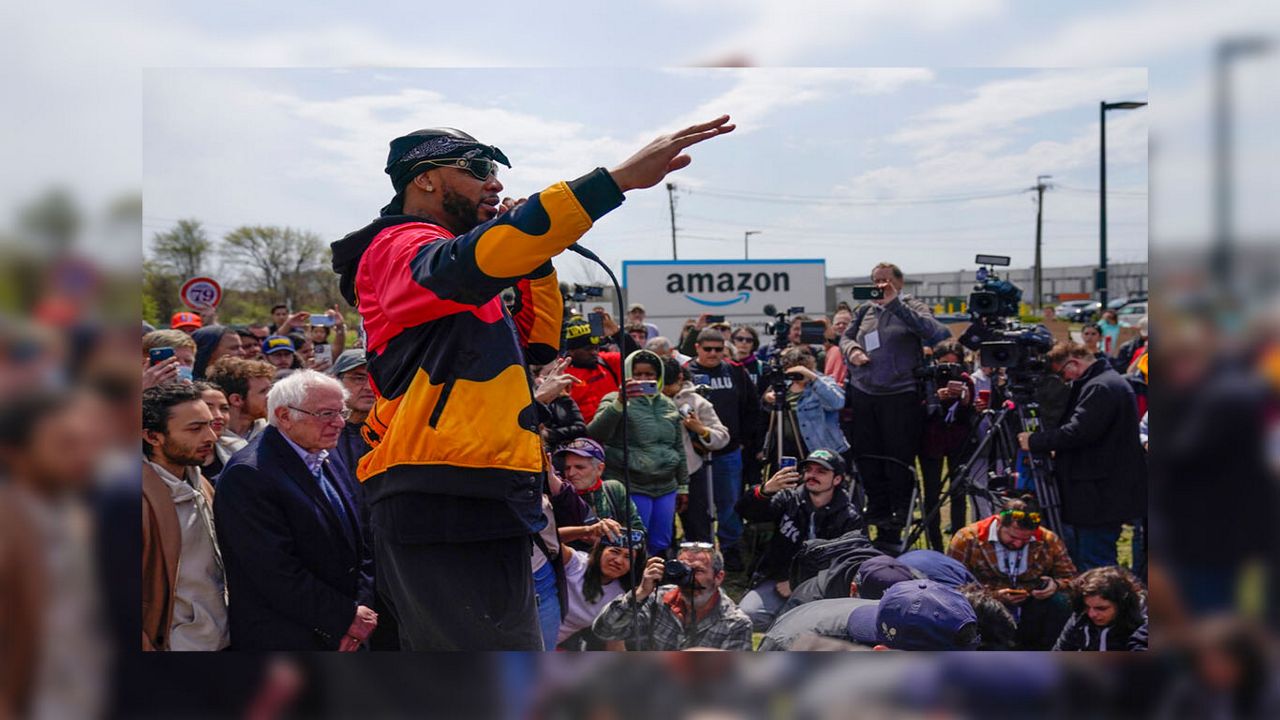Workers at an Amazon warehouse in Staten Island overwhelmingly rejected an offer to unionize on Monday, dealing a blow to organizers who last month pulled off the first successful U.S. organizing effort in the retail giant’s history.
This time around, warehouse workers cast 618 votes — or about 62% — against the union, giving Amazon enough support to avoid a second labor victory and raising questions about whether the first victory was just a fluke.
According to the National Labor Relations Board, which oversees the process, 380 workers – or 38% – voted for the rank and file union. Turnout was 61%, with some 1,600 workers eligible to vote, according to a voter list provided by Amazon.
The few ballots that were challenged by the company or by the nascent Amazon Labor Union, which led the organizing effort, were not enough to sway the outcome. Both sides have until next Monday to file objections to the election. The ALU is already planning to object, said Seth Goldstein, a lawyer for the union who provides pro bono legal assistance to the group.
Amazon spokeswoman Kelly Nantel said in a statement that the company was glad warehouse workers “were able to make their voices heard.”
“We look forward to continuing to work directly together as we strive to make each day better for our employees,” said Nantel.
A separate election last month gave UAL a surprise victory when workers at another Staten Island facility voted to unionize. This was the first time that Amazon had faced a union in the United States.
Monday’s loss will surely hurt. A second labor victory was expected to spur further organizing in the country’s second-largest employer and consolidate the ALU’s power and influence.
But despite the momentum generated by the first victory, it was not clear whether the UAL would be able to repeat its success.
Organizers said they had lost some support at the warehouse after running for office in February, because they directed more energy at the nearby facility that voted to unionize last month.
There were also fewer organizers working the facility, about 10 compared to nearly 30 employees at the other warehouse.
Despite the loss, Chris Smalls, the laid-off Amazon worker who leads the ALU, wrote on Twitter Monday that he was proud of the organizers who participated, saying they had a tougher challenge after the group’s earlier victory.
Despite todays outcome I’m proud of the worker/organizers of LDJ5 they had a tougher challenge after our victory at JFK8.Our leads should be extremely proud to have given their coworkers a right to join a Union @amazonlabor will continue to organize and so should all of you
— Christian Smalls (@Shut_downAmazon) May 2, 2022
“Nothing changes, we organize ourselves!” Smalls tweeted. “Don’t be discouraged or sad, talk to your co-workers.”
The same obstacles that plagued the effort the first time around, including Amazon’s aggressive anti-union tactics, were in play again. In the run-up to the election, Amazon continued to hold mandatory meetings to persuade its workers to reject the union effort, published anti-union fliers, and launched a web page urging workers to “vote NO.”
Goldstein, the attorney who works with the ALU, contends that Amazon stepped up its “anti-union” campaign after the last election, disciplined organizers for engaging in union activity and prohibited them from displaying a pro-union sign in the break room. .
The union also takes issue with the retailer’s use of mandatory anti-union meetings for its workers.
The NLRB has allowed companies to impose these types of meetings, but the chief prosecutor for the labor board is trying to ban them.
The union is also watching Amazon’s pockets. He is currently circulating a petition asking New York Attorney General Letitia James to investigate the possibility of Amazon getting tax credits in the state. On the national stage, US Senator Bernie Sanders is calling on President Joe Biden to cut Amazon’s government contracts for what the senator calls its “illegal union busting activity.” Smalls is expected to attend a Senate hearing on the issue, which is scheduled for Thursday.
John Logan, director of labor and employment studies at San Francisco State University, said he wasn’t entirely surprised by the union’s loss. He believed that the UAL was at the limit of its capacity. A second union victory would have cemented his position, he said, but the results were in many ways more important to Amazon than to the fledgling labor group.
“A second loss could have proved fatal to the company’s efforts to prevent the organization from spreading like wildfire, as has happened at Starbucks,” Logan said. But he noted that there is no doubt that “UAL’s organizing campaign will continue and that labor activism at Amazon will continue to spread across the country.”
–


